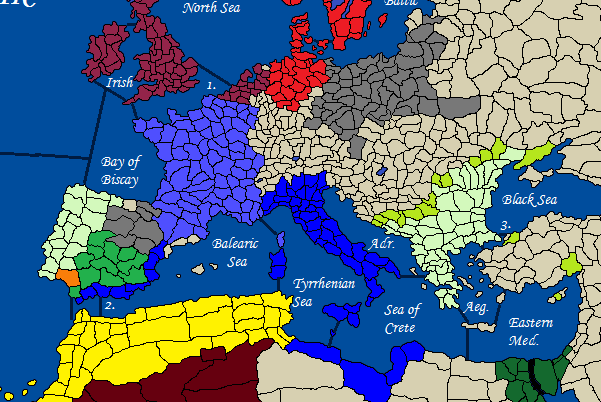===Fall of the Khmer Rogue===
As the years went on, the government of Democratic Kampuchea became less and less viable. Plagued with corruption, incompetence, desertion and disapproval, the regime began to collapse upon itself, infighting sealing its fate. Warlords spilled into neighboring regions, with chaos, famine, and war engulfing the once-sturdy republic.
Of the dozens of competing government officials, aristocrats, business magnates, criminal organisations, and other power brokers, one rose to power...
The Raiju. A clan of lynxes, they were famed - and feared - for their skill, resourcefulness, and above all, brutality and ruthlessness.
While tradition held they grew up in a harsh desert, they had come under the grip of the Khmer Rogue and had served as elite soldiers in some regions, but by and large were oppressed the same as every other group. Their bones and muscles were immensely more dense than their human counterparts, giving them a deceptively lean, dwarfish appearance. They also had far more yield per unit of muscle - a fully grown Raiju was able to lift hundreds of pounds with minimal effort.
The desert, ripe with danger, had cemented their militaristic culture. Strength determined rank, and as such, natural selection determined the government as much as everything else - kill/defeat the ruler, become the ruler. Regular culling of the gene pool made the Raiju strong and long-lasting - the average Raiju could remain into their prime well into their fifties, and the average lifespan was a decade at least more than their peers.
As promising as this all was, the militarism and aggressive nature was readily apparent. Whereas Westerners coveted hard labor to build wealth, the Raiju coveted hard labor to build muscle and increase one's stature. The lynxes also detested the many luxuries of Western life, preferring to live in simple dwellings and have a simple way of life, if bloody. While this made them seem technologically backward due to the lack of interdependence, the sheer danger the Clan posed to those who menaced them kept this at bay. Each Raiju soldier built his own home, farmed his own food, crafted his own weapons, and so on; this made the Clan extremely resourceful, enabling quick deployment of guerrilla tactics in enemy territory.
Bound by principles of strength, loyalty, and simple living, the Raiju were a proud warrior race, using their understanding of war, strategy, and resource allocation to triumph in the chaos of the former Democratic Kampuchea.

Establishing an Imperium under a fierce warrior known only as "Lightning," (due to his ability to run at speeds of approximately three hundred miles per hour) they were quick to search out new territories, displacing the inhabitants and integrating the worthy into their forces. While a fiercely conservative individual, Lightning - now dubbed the Lord Raiju - was no fool. He venerated the traditions, but saw holes in the logic of his predecessors. Declaring strength a social trait and not just an individual one, he was able to excuse cooperation for militaristic purposes - after all, the Raiju cooperated in foreign affairs to begin with, so anything that furthered this was legitimate as well. Thus, the military industry began to form - weapons and training standardised, farmland worked as a collective, the many individuals left without work swelling the ranks of the military.
Having reclaimed the word "strength" from previous, archaic ideologies, Lord Raiju was ready to launch his people onto the world stage.













 but Celtic and I can form Cool kids from Banana Republic together (dips on this as bandname)
but Celtic and I can form Cool kids from Banana Republic together (dips on this as bandname)